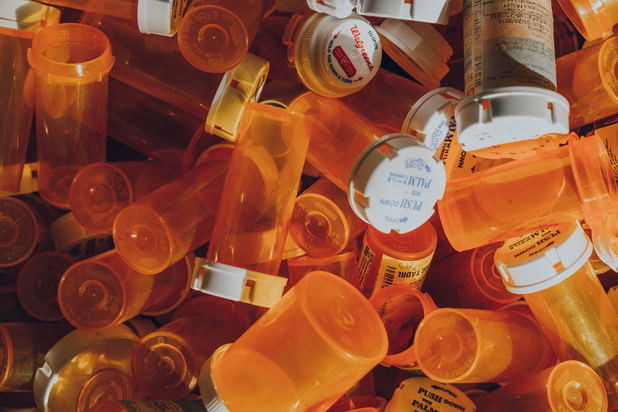Prescription painkiller abuse has been increasing dramatically over the years. According to the Centers for Disease Control and Prevention, nearly half of all U.S. opioid overdose deaths involve a prescription opioid. In 2015, more than 15,000 people died from overdoses involving prescription opioids.
Overdoses of prescription painkillers are one of the most lethal and common drug-related accidents. Unfortunately, many people who abuse these medications are obtaining them both illegally and legally.
Because so many doctors and clinics are relatively quick to prescribe them (sometimes these places are referred to as “pill mills”), people who get them legally can go on to sell them to others.
One of the reasons a problem like this has been able to take such a stronghold on otherwise non-addict citizens is because prescription medication can provide the addict with the illusion that he or she is simply taking medicine rather than abusing a hard drug.
Sometimes doctors prescribe pills that are stronger or at a higher frequency than necessary, which can lead to addiction. Even when this isn’t the case, many who are in pain up their dosage on their own because they view the increase as a harmless medical decision. But prescription painkillers are not harmless. And when they’re overdone, they can be life-threatening.
Prescription Drug Abuse
So, how can you tell the difference between legitimate prescription medication use and painkiller addiction?
Most people who abuse prescription painkillers will tell others – and themselves – that they are taking them because of pain. Whether or not this pain is real is only one aspect to consider when trying to figure out if someone is abusing this kind of medication or using it properly.
Here are some questions to ask yourself if you or someone you know may be abusing prescription medication.
1. Is the medication prescribed?
Ideally, everyone should have a primary care doctor who knows of all the medications he or she is taking, which doctors are prescribing them, and why. Transparency between prescribers is an important safeguard to addiction. Addicts do not like honesty regarding their addiction, so beware of areas of dishonesty.
2. Where are you getting the medicine?
Most people with serious pain shouldn’t have an issue getting prescription medication from the doctor who oversees their treatment plan. In my own recovery, it’s important that I get all of my prescriptions filled (whenever possible) from the same pharmacy. Pharmacy-shopping is more difficult nowadays but is a common practice among prescription addicts. A pharmacist who gets to know the patient and his or her medications is in a good position to help spot signs of possible prescription addiction.
3. How frequently are you taking the medication?
Are you taking pills every few hours or are you actively trying to space them out as much as possible? Is your suspected loved one taking a low dosage or a high dosage? All prescription medication must be taken as prescribed. Taking higher doses or more frequent doses is a sign of possible addiction. Many doctors write prescriptions for pain medication to be taken “as needed” (or PRN). If you find yourself or a loved one taking these medications on a regular basis or in higher doses, the prescribing doctor needs to know. Working honestly with your doctor is essential to recognizing and preventing possible addiction.
4. How do you act when you don’t have medicine?
If you or your loved one forgets the medication at home or can’t get a refill on time, what happens? Your behavior during this time is usually a telling sign as to whether or not you are an addict. One thing I’ve learned from my own addiction, as well as working with other addicts, is that addicts always know exactly when a prescription is refillable. If a person is consistently returning to the prescribing doctor or pharmacy for a refill “exactly on schedule,” this should be a huge red flag that there might be a problem.
With laws in place to prevent refills of most narcotic pain medications as well as limitations on early refills, it is more difficult to circumvent the prescriber’s order. This is also why it is so important to utilize the same doctor and pharmacy for medications. Addicts will also frequently get “panicky” and irritable right before a prescription runs out. A great deal of time is spent scheduling doctor appointments and pharmacy pickups prior to a medication running out.
5. Do you go to different doctors because they have an issue getting a prescription written from their primary doctor?
If this is the case, they might be “doctor shopping,” perhaps without even knowing it. As mentioned above, doctor and pharmacy shopping is becoming difficult due to new laws enacted to contain the prescription epidemic. Taking different prescriptions from different doctors can easily lead to overdose. Every prescribing doctor needs to know exactly what prescriptions you are currently taking to ensure safe and effective treatment.
6. How long have you been taking painkillers?
Prescription pain killers are usually not an ideal way to manage chronic pain. They’re much more effective for acute pain, which should pass in a matter of weeks in most cases. If the person you know is still taking this medication many months or even years later, it’s worth checking to see if they’re exhibiting other behaviors of addiction.
While prescription pain medications are often useful and sometimes necessary to treat moderate to severe pain, they are far from harmless. It is important to monitor your intake of these medications and maintain an open and honest dialogue with your doctor. Always express your concerns about possible addiction (especially if you have a history of addiction) with your doctor so that he or she can work with you to provide the safest and most beneficial treatment.
|
If you or someone you know is seeking help from addiction, please visit our directory of treatment centers or call 800-891-8171 to speak to a treatment specialist. |








